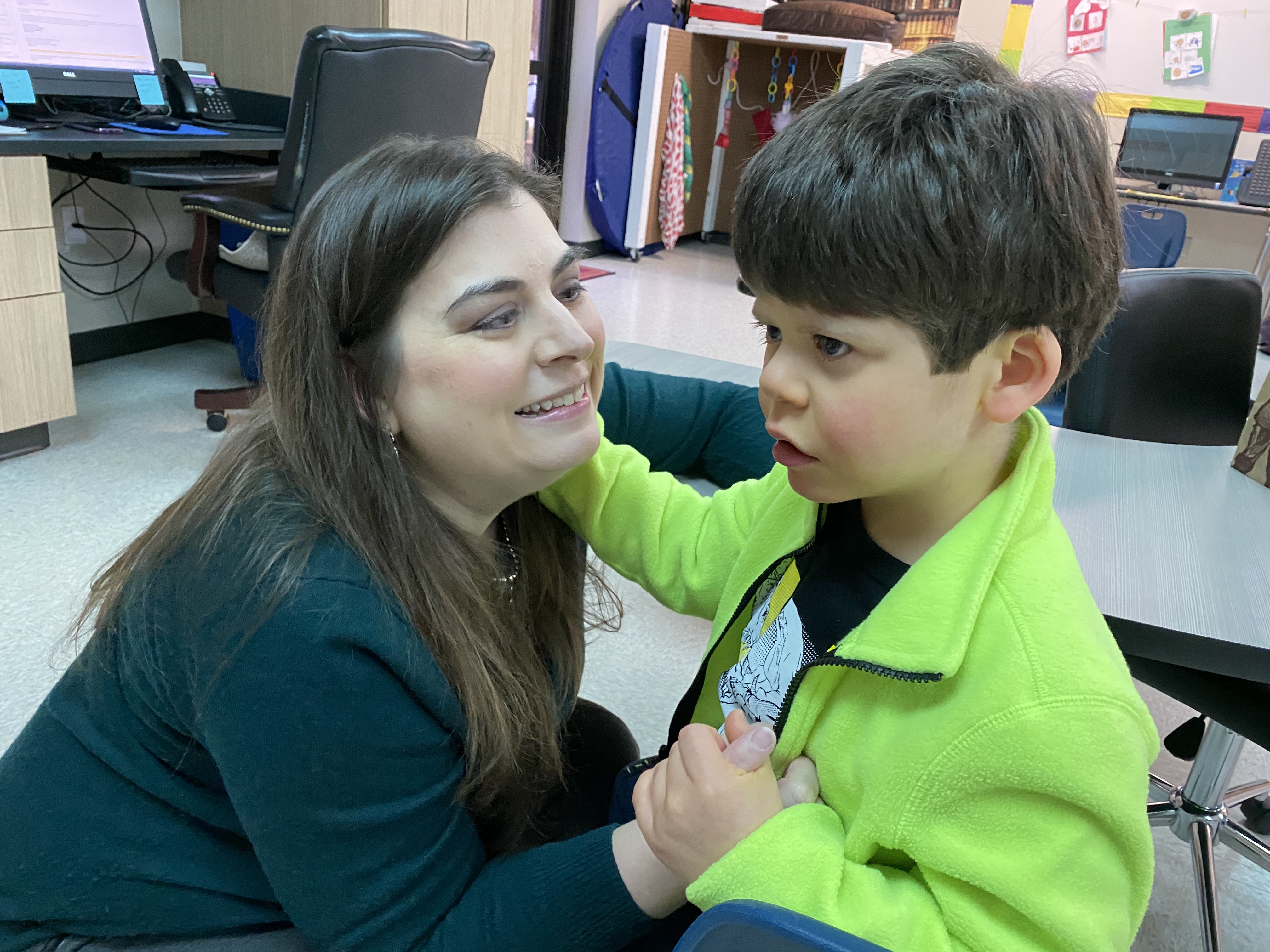The diagnosis of Williams syndrome presents challenges for every individual and his or her family. Williams syndrome is a spectrum disorder. There is a great deal of variability in individuals throughout the spectrum. Medical concerns and learning challenges, emotional issues, and anxiety are common and can be all-consuming at times. The severity of the challenges varies and can ebb and flow over the years. Most of the time, the challenges are manageable and are offset by the joys that are also common to Williams syndrome – the friendly, empathetic, and endearing personalities, good verbal skills, and the innate goodness that gives individuals with Williams syndrome a unique ability to leave a lasting and positive impression on those they meet – even when only briefly.
But for some, the challenges are more severe or greater in number, and the joys less prominent. Where a child may fall on the bell curve can make a world of difference, and can lead to an array of different feelings for parents, and different levels of support for the individuals. Parents may feel almost like they lost the Williams syndrome lottery, or may wonder whether they are doing the “right” things for their child when their son or daughter doesn’t seem to be able to accomplish the same things they see in other individuals with WS.

"Many people with WS have sensitive hearing and some level of anxiety, but for my son, the sensitivities are so high that they affect everything we do – almost any event that involves a crowd is too much for him, and even the potential for certain noises can be paralyzing for him. Attending a baseball game, for example, just doesn't work for us. If only he could enjoy it as much in person as he did as a 'cutout' fan! In those moments, I often feel alone in this journey, instead of part of a group of others who get it”.
-Sarah, mom to teen with WS
Instead, their child with Williams syndrome may have medical problems or dual diagnoses that no one else is talking about, or may not have that highly social and endearing personality, or is non-verbal and not able to leave that lasting and positive impression, that so many other parents speak about regularly.

"As the mother of an 8-year-old child with Williams syndrome who has extreme delays, including being non-verbal and unable to chew food, it can quickly become disheartening to see other with WS of the same age engaging with each other while our child remains on the outside looking in. Finding other families who are facing similar struggles would help combat these feelings of isolation, and let us know we are not alone."
– Amanda, mom in Texas
Like any spectrum condition, most of the literature on Williams syndrome relates to the most common characteristics – the medical issues and successful treatments for issues most often encountered, educational strategies that are appropriate for “most” students with WS, and behavior modifications for “typical” behaviors of children with WS.
Throughout 2020, we talked about the social isolation that individuals with Williams syndrome were experiencing, without the regular contact of friends, and community members. Parents of individuals with Williams syndrome who don’t “fit the mold” – who have more, or different complications than most - can feel isolated within the WS community much of the time. With the recent boom in social media, we were made fully aware of the magnitude of complicating issues, and the isolation they can create. We are working to help correct that.
This spring we will provide a special webinar series for parents who have children with more complex characteristics of Williams syndrome, and we will work during WS Awareness month in May to provide increased opportunities for everyone in our community to be heard, and to help us all develop a fuller understanding of the broader spectrum of characteristics of Williams syndrome, and the additional challenges of raising a child who is more complex.
If your child has a complicated issue or issues associated with Williams syndrome that we haven’t been addressing, please click the button below and let us know your issues or concerns by March 31. We will use the information you submit to design the special webinar series to address these issues and provide the additional resources and support you need. And if you’d like us to feature your child and/or your story during awareness month, please be sure to let us know, so that we can reach out to you for more information in the coming weeks.
Our mission is to provide the resources and support that every family needs, with the belief that every individual with WS can live full, productive, and self-directed lives with the right supports and accommodations. We are committed to helping parents find that formula, and with your help we can ensure that we are always working within our mission.
